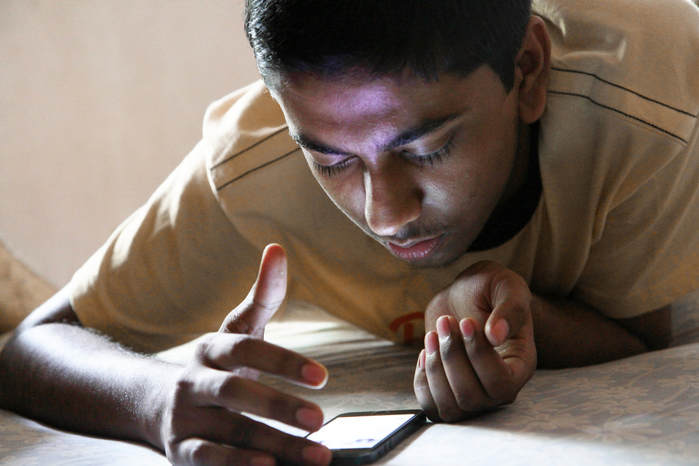How Smartphones Eat Away at Sleep
Welcome to the age of smartphones. With the advent of smartphone technology and rises in its sales every year, people are spending more and more time on screen every day. People hold onto their smartphones so much now that some users become paranoid when they don’t have the device on them, possibly feeling unconnected from the world The “no mobile phone phobia”, otherwise known as nomophobia, is actually a thing.
Concerned about the increasing usage of smart electronic devices and how that would affect adolescents’ health, a San Diego State University (SDSU) research team led by Professor of Psychology Jean Twenge reported in Sleep Medicine their findings in October. The main key finding was that an increasing number of adolescents showed reduced sleep time and increased time spent on their smart electronic devices.
Based on data collected from two different national surveys - Monitoring Future and Youth Risk Behavior Surveillance System - the SDSU team found a strong correlation between screen time and adolescents who reported lack of sleep. Those who had three or more hours of daily screen time were more likely to report less than seven hours of sleep. Parents should be alarmed, as many researches suggest an average of nine hours of sleep for adolescents between ages of 12-17.
Concerned about the increasing usage of smart electronic devices and how that would affect adolescents’ health, a San Diego State University (SDSU) research team led by Professor of Psychology Jean Twenge reported in Sleep Medicine their findings in October. The main key finding was that an increasing number of adolescents showed reduced sleep time and increased time spent on their smart electronic devices.
Based on data collected from two different national surveys - Monitoring Future and Youth Risk Behavior Surveillance System - the SDSU team found a strong correlation between screen time and adolescents who reported lack of sleep. Those who had three or more hours of daily screen time were more likely to report less than seven hours of sleep. Parents should be alarmed, as many researches suggest an average of nine hours of sleep for adolescents between ages of 12-17.
The data used in Twenge’s study was collected from U.S. adolescents between 2009 and 2015, and many other factors were accounted for to analyze if there could be other correlations to the lack of sleep. Although non-screen activities such as homework or working for pay may have had an effect, the SDSU team did not find any statistical significance. Not surprisingly, a high percentage of adolescents reporting lack of sleep have skyrocketed: nearly 50% of surveyors using more than five hours a day of electronics.
Shortened sleep duration has been found to be a health risk. It has been associated with many major health problems such as obesity, diabetes, cardiovascular diseases, and other varieties of psychological and behavioral problems. The emitted light from screens may displace or delay sleep time by allowing arousal and, consequently, affect the circadian rhythm. A different study also from Twenge suggested that this setting could ultimately lead to depressive symptoms and suicide-related outcomes.
With the oversaturation of smartphones in the United States market and their popular usage, decreasing screen time is not an easy task. However, the study suggests public health interventions may be necessary as it would be beneficial to adolescent health. In addition, personal control would be an important factor that to mitigate the effects of screen time on sleep duration.
Shortened sleep duration has been found to be a health risk. It has been associated with many major health problems such as obesity, diabetes, cardiovascular diseases, and other varieties of psychological and behavioral problems. The emitted light from screens may displace or delay sleep time by allowing arousal and, consequently, affect the circadian rhythm. A different study also from Twenge suggested that this setting could ultimately lead to depressive symptoms and suicide-related outcomes.
With the oversaturation of smartphones in the United States market and their popular usage, decreasing screen time is not an easy task. However, the study suggests public health interventions may be necessary as it would be beneficial to adolescent health. In addition, personal control would be an important factor that to mitigate the effects of screen time on sleep duration.
RELATED ARTICLES
|
Vertical Divider
|
Vertical Divider
|
Vertical Divider
|






